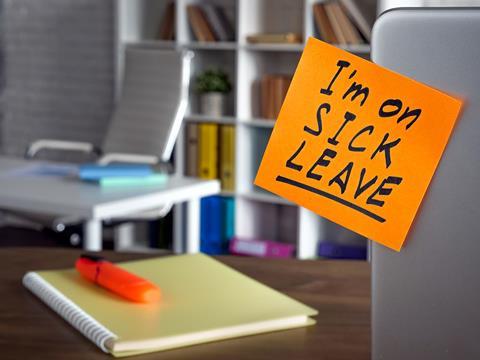
Nearly half (46%) of UK workers have taken extended sick leave in the past five years, with 19% being out of work for between one to five months, according to research by Barnett Waddingham.
Its survey of more than 2,000 employees, also found that 58% of respondents said they are currently not offered private health cover by their employer, despite 35% saying they would use it. Almost one-third (31%) reported lacking paid sick leave and 61% said they are not offered critical illness insurance.
More than a quarter (28%) believe a reduction in NHS waiting times through more in-person appointments would be most beneficial to help them remain in work, while 24% want faster referrals to specialist care and 22% would like more virtual NHS appointments.
One-fifth (22%) of employees, particularly women (25%) and those aged 25-34 years (27%), said they want better mental health support or NHS mental health triaging services.
A further 22% would like financial assistance for managing long-term health conditions, while 18% said clearer sick leave and absence management workplace policies would help them most. In addition, 21% said suitable adjustments in the workplace, such as flexible working, are still a top priority.
Julia Turney, partner and head of platform and benefits at Barnett Waddingham, said: “The message is clear: workers need better health support, both from employers and the NHS, to stay in or return to work. With economic inactivity rising, businesses and the government can’t afford to ignore the growing gaps in healthcare benefits, and mental health support. Flexible working, better health cover and faster NHS services will all be part of the solution, but action is needed now.
“With the Spring Statement approaching, the government must think carefully about how [it] enacta the next stages of its Get Britain Working mandate. Otherwise, we risk another year of economic stagnation, a disengaged, inactive workforce that is too sick to be productive, and a business landscape struggling with absenteeism, lost talent, and declining productivity.”











